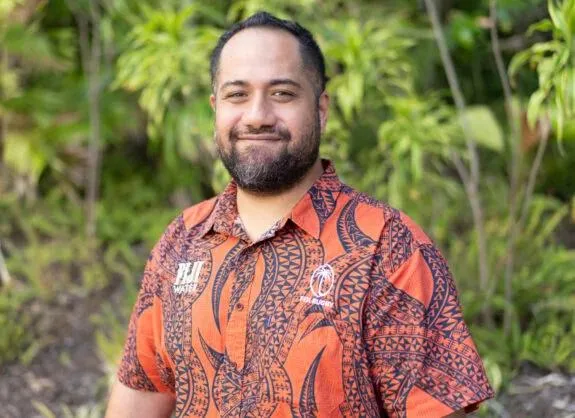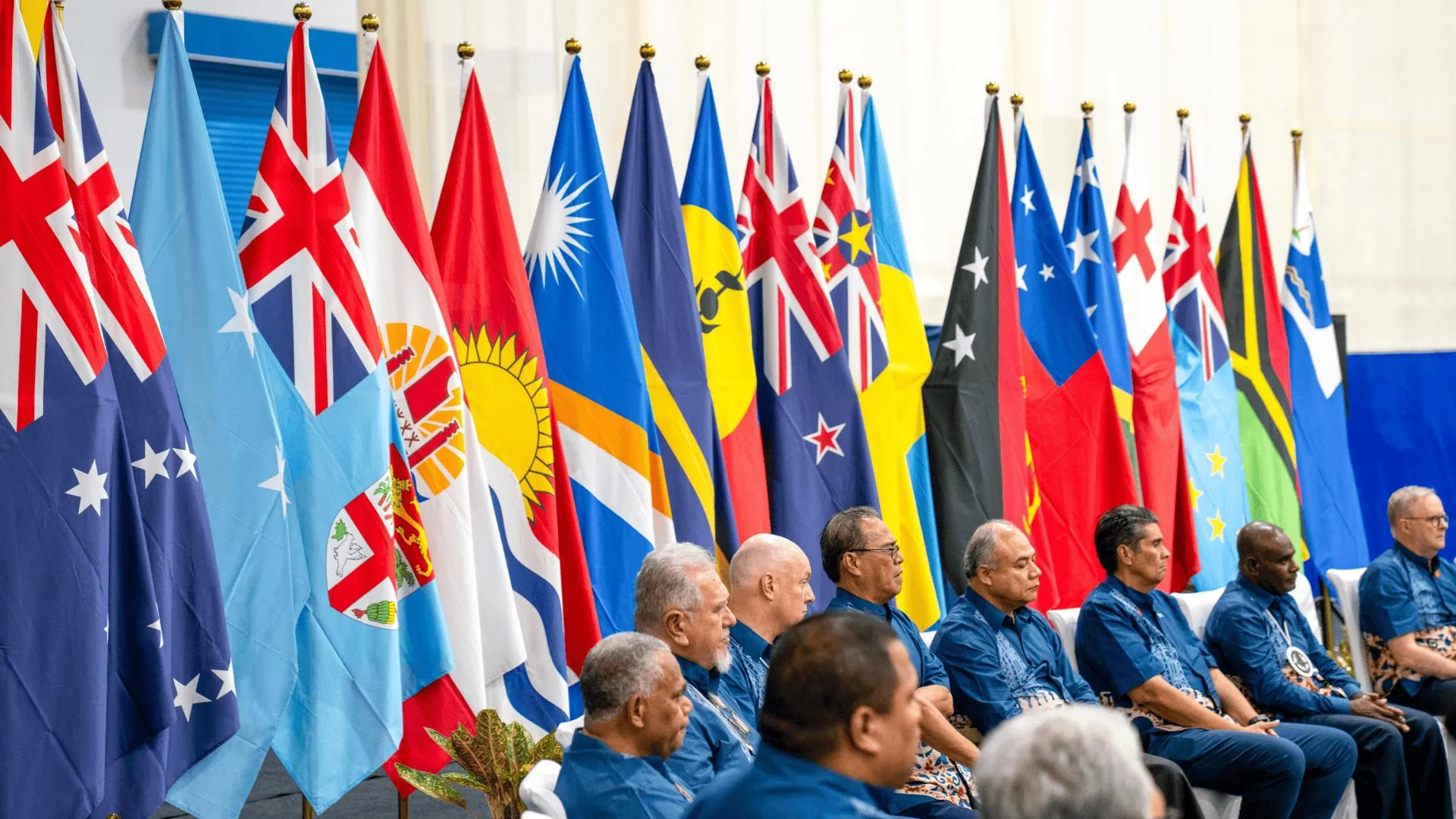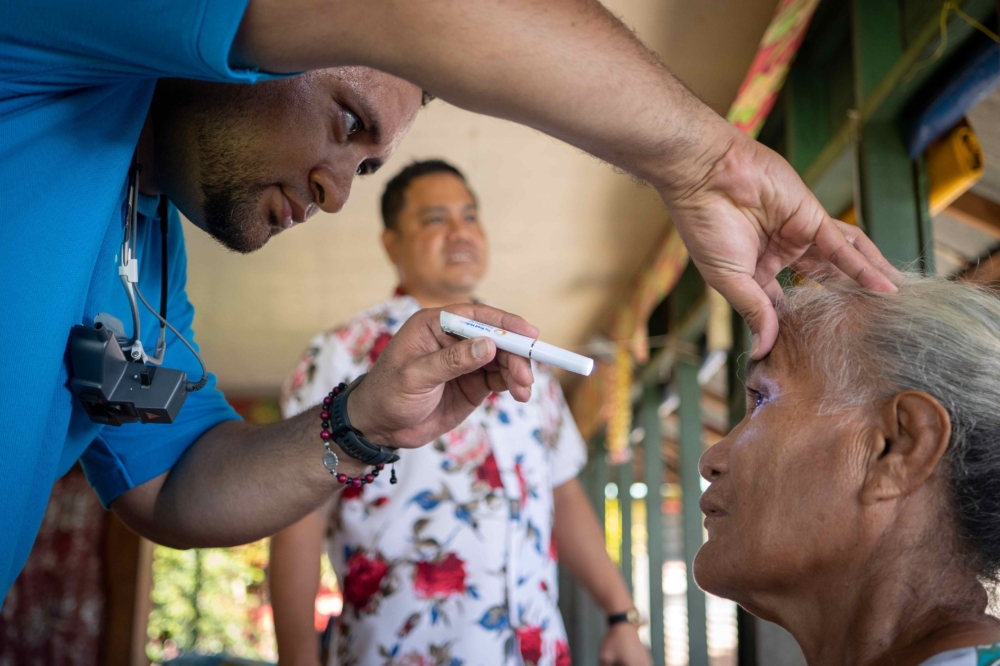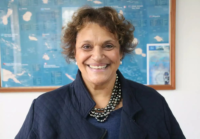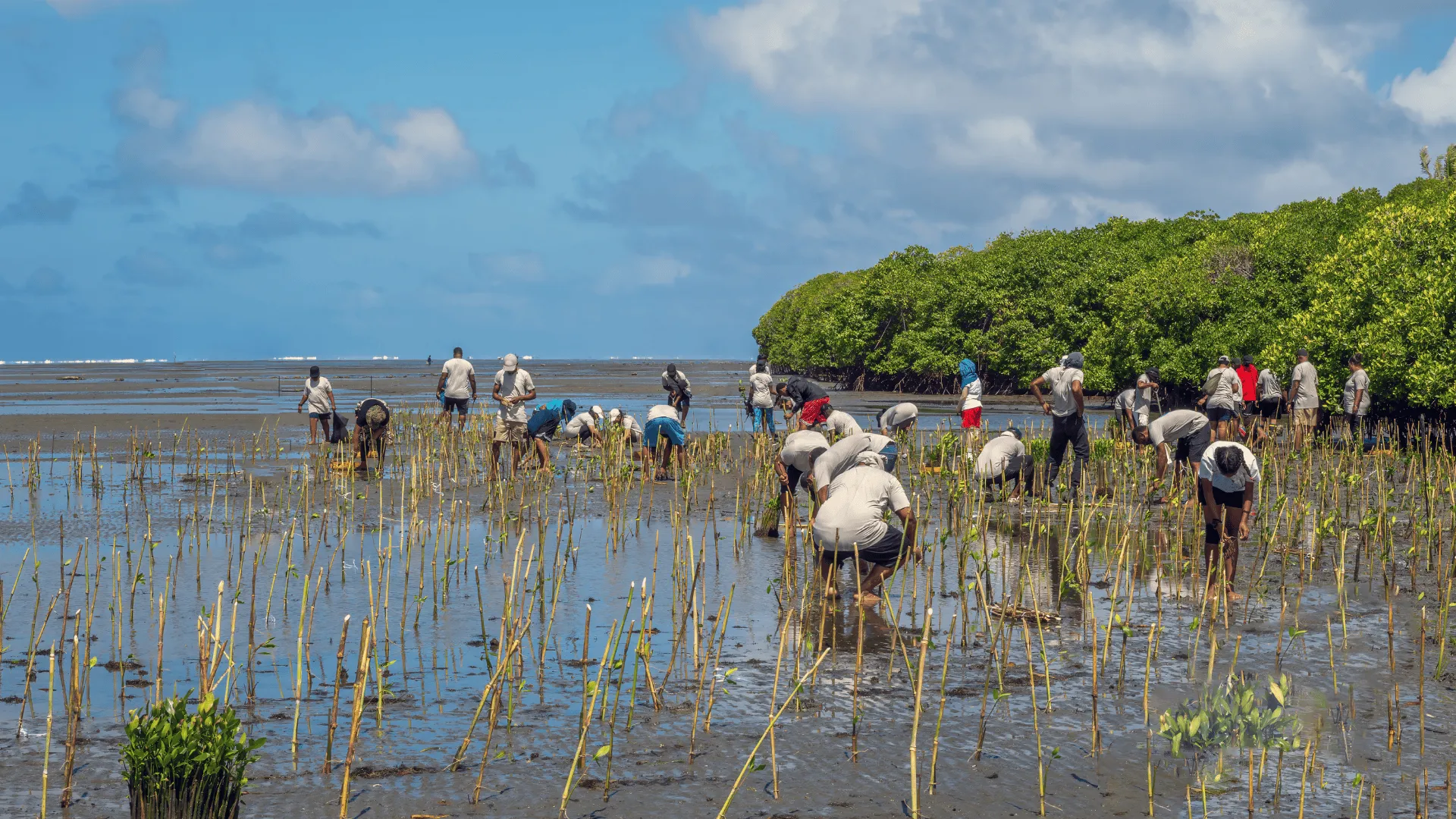Strengthening the Blue Pacific: Insights from the Forum Leaders’ Meeting
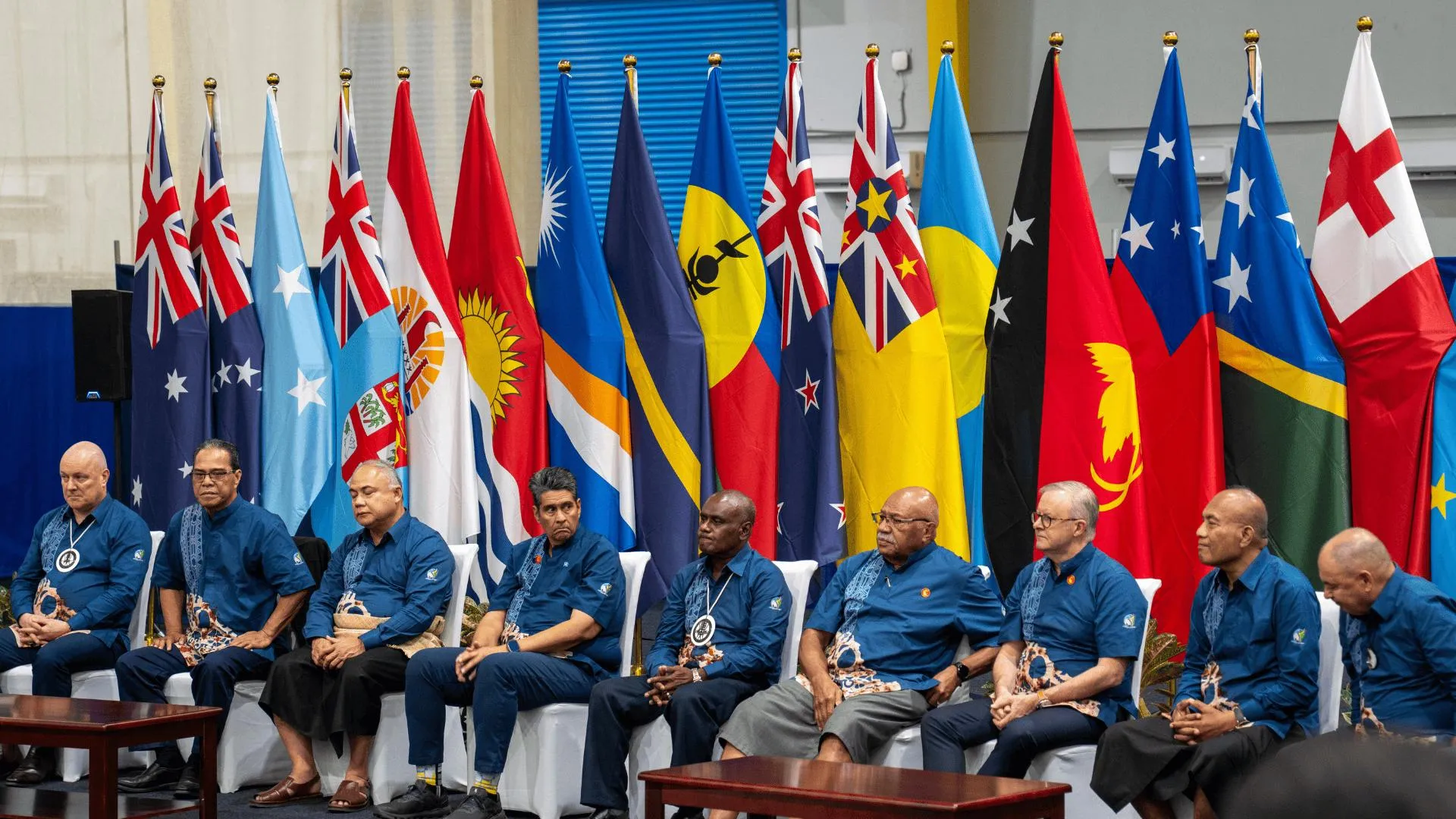
Leaders at the 54th Pacific Islands Forum Leaders’ Meeting in Solomon Islands. Photo: Pacific Security College
The 54th Pacific Islands Forum Leaders’ Meeting was a milestone event for the government and people of Solomon Islands, hosting the meeting for the first time since 1992.
Held under the theme ‘Iumi Tugeda: Act Now for an Integrated Blue Pacific Continent’, it marked a significant moment in regional diplomacy and cooperation.
The decision to exclude Dialogue Partners and observers attracted media attention in the lead-up, but the meeting proceeded without incident, and the absence of partners allowed leaders to focus on the agenda at hand.
Overall, they made progress on several major issues, with some long-awaited initiatives finally coming to fruition.
Launch of the Ocean of Peace Declaration
The Ocean of Peace has been in development since mid-2023, spearheaded by Prime Minister Sitiveni Rabuka of Fiji. It sets out a vision for the region to remain a zone of peace, with principles that speak to preventing conflict, avoiding escalation, and maintaining stability across the Pacific.
In the broader geopolitical and geostrategic environment, this declaration builds on existing declarations, including the Biketawa and Boe declarations, adding another important layer to the region’s security policy architecture.
In adopting the declaration, the prime ministers of Solomon Islands and Fiji spoke passionately about the importance of peace in the region. Leaders, including Prime Minister Anthony Albanese, took part in a ceremonial signing of a valu (a symbolic paddle) in a display of collective commitment to the vision.
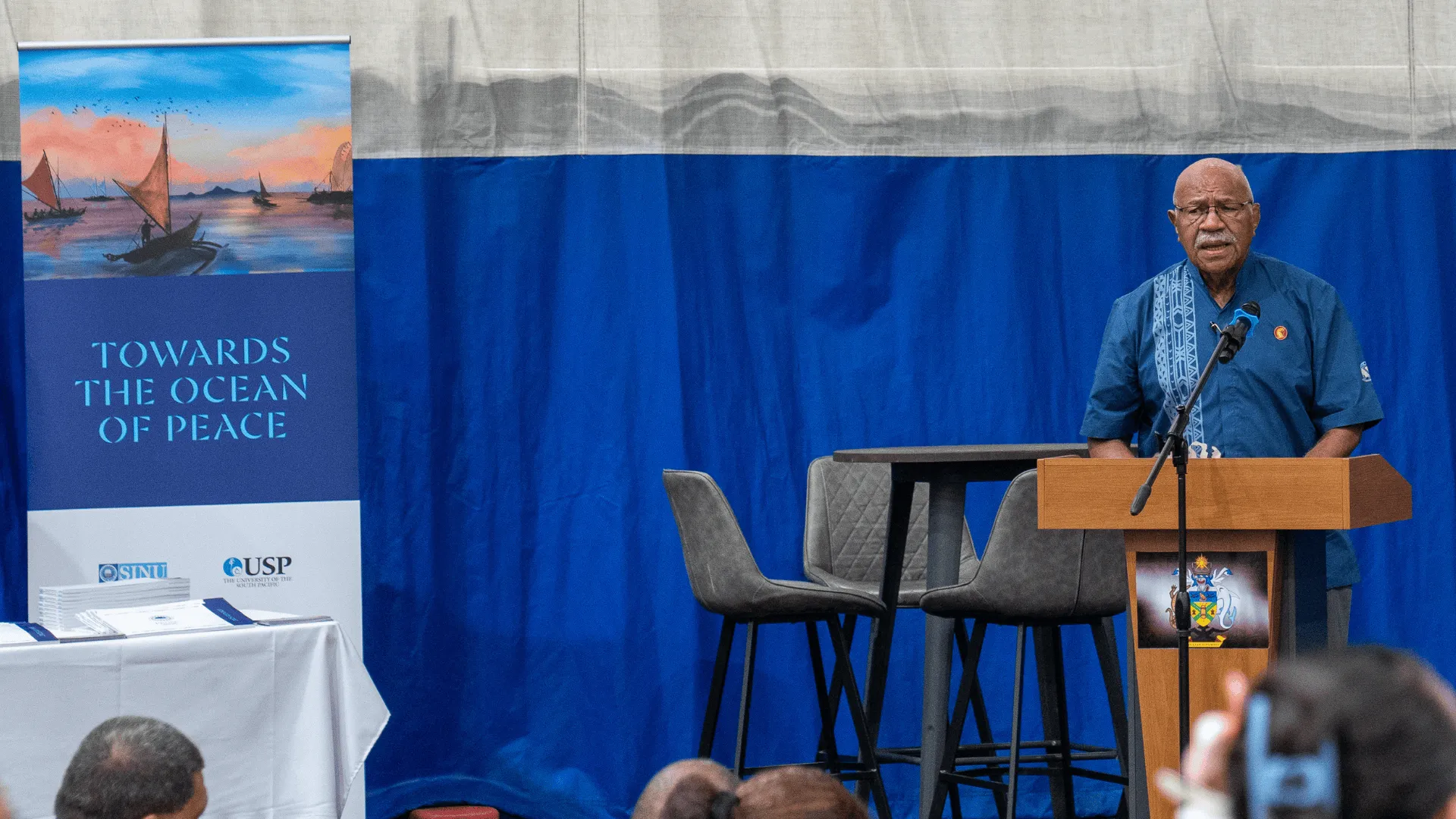
Prime Minister of Fiji, the Honourable Sitiveni Rabuka, speaks at the Ocean of Peace Commemorative Ceremony at the Pacific Islands Forum Leaders’ Meeting. Photo: Pacific Security College
The challenge now lies in the implementation. It’s one thing for leaders to agree on a new declaration, but the real test will be in how it is carried out – particularly in a way that aligns with the region’s existing security approach, such as outlined in the Boe Declaration.
Establishment of the Pacific Resilience Facility (PRF)
Another major milestone was the launch of the Pacific Resilience Facility (PRF). Conceived more than a decade ago, the PRF has now been formalised through a treaty signed by 15 Forum members, which establishes the facility’s infrastructure and governance arrangements.
The facility is designed as the Pacific’s homegrown solution to the challenges it faces in accessing climate finance at the global level. Once established, it will provide small- to medium-scale grants to government, business and local communities in the Pacific, to strengthen their resilience to the impacts of climate change and disasters.
To date, about US$165 million of capital has been raised, with a target of reaching close to US$500 million before disbursement begins. With the treaty now signed, the pathway is clear to move from concept to implementation.
Significantly, the treaty to establish the facility is the first new Pacific treaty to be concluded in some time, underlining the enduring importance of Pacific regionalism and multilateralism.
Review of Regional Architecture (RRA)
Since 2019, the Forum has carried out an ongoing Review of Regional Architecture (RRA). At its core, the RRA looks at how the Pacific’s regional architecture is governed, organised and managed, particularly to ensure it is set up to deliver on the region’s strategic vision as outlined in the 2050 Strategy for the Blue Pacific Continent.
This year’s discussions focused heavily on how Forum Leaders should prioritise the partners they engage with, including countries (such as the US and China) and organisations (the United Nations and the Commonwealth Secretariat).
With growing geopolitical competition in the Pacific, Forum Leaders engage with a range of traditional and emerging partners. Leaders seek a more strategic approach: prioritising engagement with those partners most aligned with Pacific priorities and most likely to deliver tangible benefits.
The engagement policy agreed by leaders in Honiara provides a framework for that prioritisation. As with the Ocean of Peace, the real test will be the implementation, which in this case is a highly political exercise.
The joint bid for COP31
As the battle to host the world’s leading climate change summit next year continues, Forum members reaffirmed their support for Australia’s bid for a Pacific COP31.
Climate change is the single greatest threat facing Pacific Island countries, and a joint Australia-Pacific COP would give the nations a strong platform to advocate for the global action needed to address the climate crisis.
Australia and Türkiye are both vying for the rights to host. A decision is expected at COP30, to be held in Brazil in November.
Pacific Security College Director Professor Dave Peebles and Senior Pacific Fellow Joel Nilon share their thoughts on the 54th Pacific Islands Forum Leaders’ Meeting.
Looking ahead
Notwithstanding initial concerns regarding the absence of partner countries, the 54th Forum Leaders’ Meeting will be remembered as an opportunity to progress and sign off on several critical regional initiatives. It is also worth noting that all the public sentiments to emerge from the dialogue reflected a leadership that was unified in purpose and intent.
Compared to the fragmentation that has characterised the Forum in years gone by, this year’s meeting should be viewed as a considerable success, for which the government and people of Solomon Islands, and the Secretary General and staff of the Forum Secretariat, should be recognised.
As the region prepares for next year’s meeting in Palau, attention will turn to how these declarations and treaties are implemented and translated into tangible benefits for Pacific communities.
